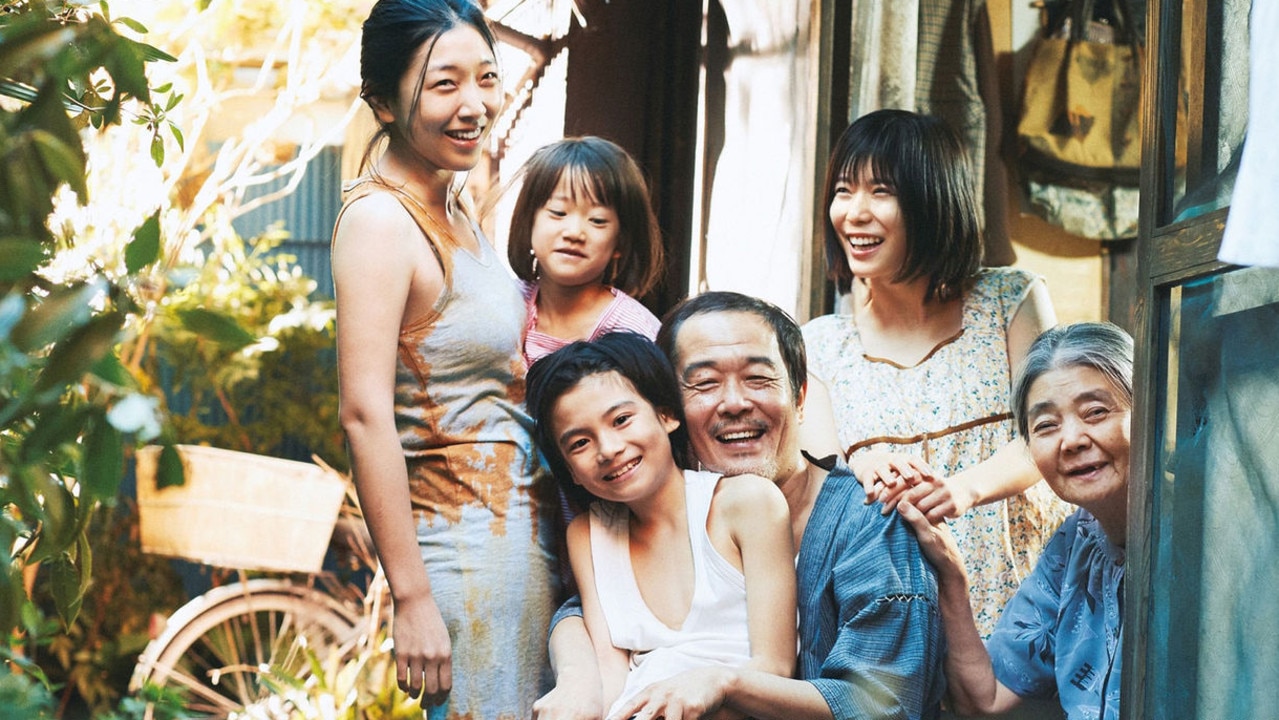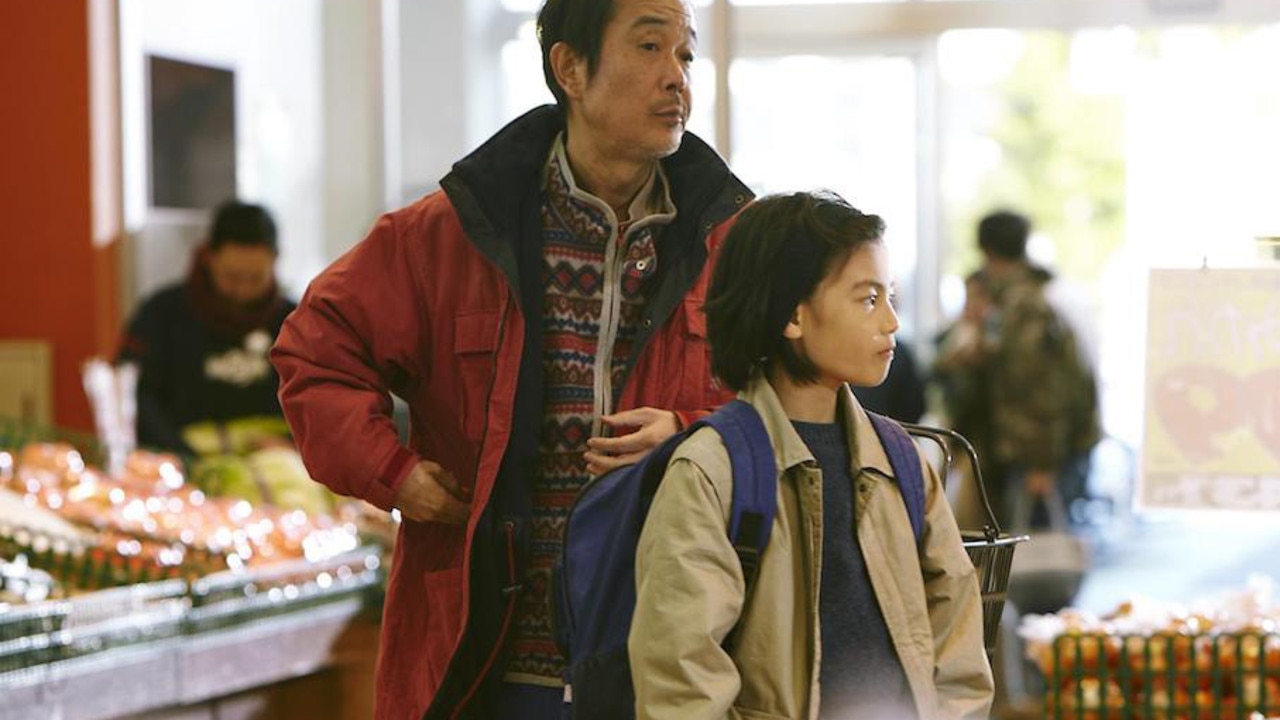Shoplifters: Cannes-winning movie released in Australia
It won one of the film industry’s top awards six months ago and now Australian audiences finally have to chance to see it for themselves.
What makes a family is a question movies can’t get enough of.
And you can understand why — it’s a universal concept audiences all over the world relate to. Is family the people you’re arbitrarily born to or is it the people you choose for yourself? What’s the stronger, worthier bond?
That idea is at the core of Shoplifters, a Japanese movie out this week in Australia and the winner of this year’s Palme d’Or, the top prize at the Cannes Film Festival.
Shoplifters is a work of such grace and empathy, it’s not surprising it was so lauded upon its premiere.
Somewhere in Tokyo, amid the new apartment developments is a small, rickety house with barely three rooms, a total floor space smaller than your average convenience store.
Inside resides the Shibatas, a family consisting of Hatsue (Kirin Kiki), the grandmother whose pension everyone relies on, day labourer Osamu (Lily Franky), his wife Nobuyo (Sakura Ando), young woman Aki (Mayu Matsuoka) and Shota (Kairi Jo), a pre-teen boy.
The Shibatas crowd in this tiny structure, gathered around the low-lying table, sharing a meal, the sound of noodles slurping a comforting melody. Throughout the film, characters are often seen eating, often voraciously, that reinforces the tie between food and family — two forms of sustenance best enjoyed together.
The Shibatas don’t seem to fit in a biological sense — and you only find out in the final act how everyone is actually connected — but their chemistry is natural, easy and familiar.
Shota and Osamu often go on shoplifting excursions, stealing essentials such as shampoo in an elaborate ritual with hand signals and shifty choreography. The older man tells the young boy that anything in a shop “doesn’t belong to anyone yet”.
On a cold night on their way home from one of their illegal expeditions, Shota and Osamu come across a five-year-old girl, Yuri (Miyu Sasaki), stuck outside on a balcony. They’ve seen her there before.
Worried that she’ll freeze, they take her back to their home. When the family sees her scars, a sign of abuse, and overhear her parents fighting and declaring that they never wanted her, the Shibatas decide to informally adopt her.

Yuri’s biological parents don’t report her missing for two months and when they do, the Shibatas change Yuri’s name and disguise her.
Shoplifters is almost an anthropological look at outsiders in one of the world’s most modern cities — outcasts left behind and marginalised by a society that would rather not deal with them. It’s a commentary on itinerant workers, poverty, resilience and the class divide.
And then it goes back to that idea of found family. Though their resources are limited, they take on a new person without hesitation.
Maybe that sounds heavy, but Shoplifters is not. It’s never cloying or trite, preferring a subtle emotionality that’s sparingly used.
Director and writer Hirokazu Kore-eda (Nobody Knows, Like Father, Like Son) tells his story without a sense of gravity or burden. His shot compositions are gorgeous to look at and the film is beautifully lit by cinematographer Kondo Ryuto.

It takes prodigious skill to make a movie with as many layers of significance to be as light on its feet as it is.
Most of the film is a languid experience, as if the camera has just been placed in the house, non-invasively, to drink it all up. It doesn’t necessarily forward the plot but it covertly builds a lot of character work, establishing an intimate connection between them and the audience.
Kore-eda imbues his characters with so much empathy, no matter what they do (and some of it is quite questionable), you don’t judge them, you understand.
That alone would make Shoplifters a movie worth watching. But it’s so much more than that — it’s a profoundly human story.
Rating: ★★★★½
Shoplifters is in cinemas from Thursday, November 15
Share your movies and TV obsessions: @wenleima




